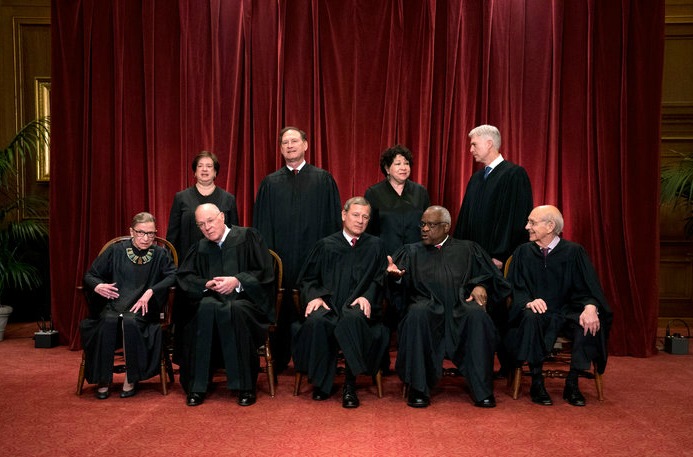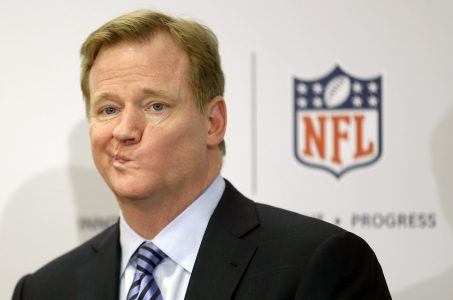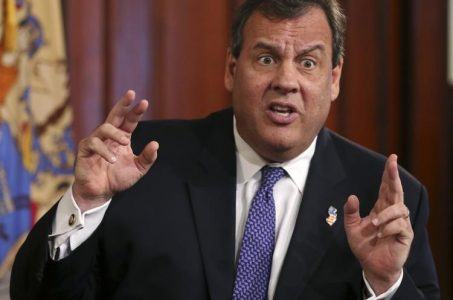Law Experts Have No Clue Where Supreme Court Will Land on PASPA
Posted on: August 10, 2017, 04:00h.
Last updated on: August 10, 2017, 01:43h.
PASPA, the federal gambling law that prevents sports betting in all but four states, is a complicated juggernaut that has legal experts stumped.

The Supreme Court agreed to take up New Jersey’s challenge that PASPA (Professional and Amateur Sports Protection Act) violates the US Constitution, but those with the most intimate knowledge of the case are struggling to find consensus in predicting its outcome.
During a discussion this week at the 17th Annual Saratoga Institute on Equine, Racing, & Gaming Law Conference, coordinated by the Albany Law School in New York, gambling experts voiced varying opinions on the chances of the Supreme Court overturning the long-standing sports betting ban.
“I would not put money on anything, even if I legally could,” law professor and sports business expert Marc Edelman said, as reported by the Daily Racing Form, a media outlet that covers horse racing.
Edelman appeared on the “Legalization of Sports Betting” panel with CG Technology attorney Tonya Henderson, American Gaming Association’s Director of Research Andrew Smith, and New York Assemblyman J. Gary Pretlow (D-Westchester), a proponent of online gambling.
The Supreme Court is expected to hear the sports betting case this fall, and make a decision sometime in 2018.
PASPA vs. Tenth Amendment
The Supreme Court will consider whether PASPA violates the US Constitution’s Tenth Amendment which declares, “Powers not delegated to the United States by the Constitution, nor prohibited by it to the States, are reserved to the States respectively, or to the people.”
Signed in 1787, the US Constitution of course says nothing about gambling or sports betting. Nor does any of the 27 amendments.
There are several potential outcomes for the Supreme Court.
In addition to of course keeping PASPA enacted and dismissing New Jersey’s challenge, the court could rule that the sports betting ban is unconstitutional and effectively give powers of gambling on sports to the states. At least two of the gambling law experts believed the latter is the most likely outcome, but Drake Law Professor Keith Miller, who moderated the conversation, said the leagues would interject.
Miller opined that he thinks if PASPA is indeed deemed unconstitutional, the NCAA and Big Four (NFL, MLB, NBA, NHL) would urge Congress to create federal regulatory guidelines. That wouldn’t seem to resolve the Tenth Amendment concern, but New Jersey would presumably still take it as a win.
How We Got Here
In 2014, New Jersey Governor Chris Christie (R) signed a clever piece of legislation that repealed federal sports betting prohibitions placed on the state. It replaced a statute passed two years earlier that simply called to legalize sports gambling.
The NCAA, along with the Big Four, quickly filed a lawsuit to prevent New Jersey horse racetracks and Atlantic City casinos from opening lines on athletic events. Courts have repeatedly sided on the plaintiffs’ side, and few thought the Supreme Court would actually accept the state’s appeal.
The shocker came in June when the high court, casting aside an opinion from its solicitor general to dismiss, granted a review of New Jersey’s argument.
Related News Articles
Sports Betting Ban PASPA Finally Gets Its Day in Supreme Court
Most Popular
Mirage Las Vegas Demolition to Start Next Week, Atrium a Goner
Where All the Mirage Relics Will Go
Most Commented
-
Bally’s Facing Five Months of Daily Demolition for Chicago Casino
— June 18, 2024 — 12 Comments
















Last Comment ( 1 )
its a shame when u.s. are telling citizens how to live their lives.the biggest hypro crpts in the world. the u.s. government wants to know the last place I went to the bathroom.